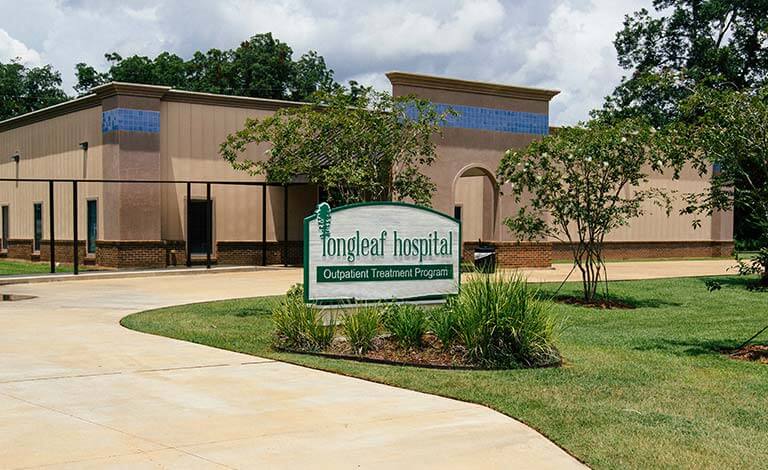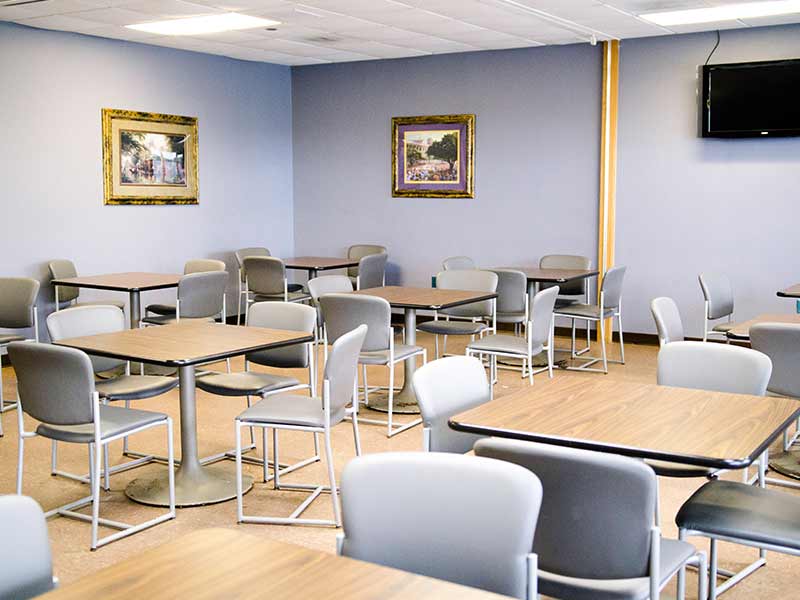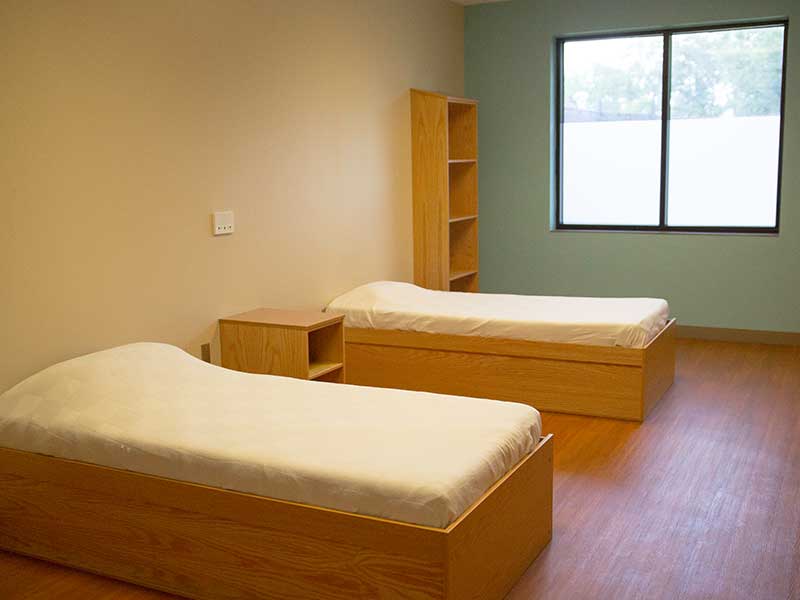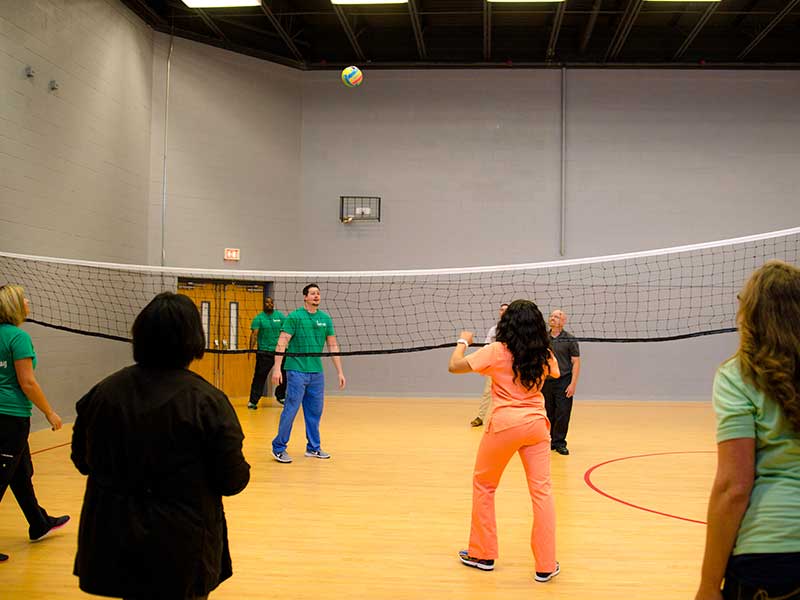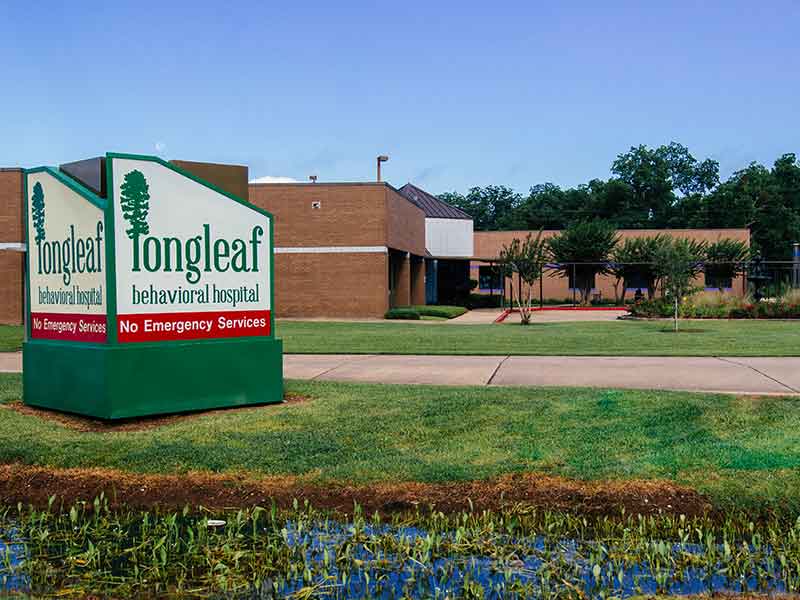Our commitment to comprehensive care for PTSD means that we are prepared to provide you with the type, level, duration, and intensity of services that will best meet your needs.
PTSD Treatment
Learn more about PTSD treatment at Longleaf Hospital in Alexandria, LA
Post-traumatic stress disorder, which is commonly referred to by the acronym PTSD, is a mental health disorder whose symptoms manifest in the aftermath of one or more horrific, life-threatening, or otherwise profoundly upsetting events.
PTSD can develop among individuals who directly experience such events, as well as among those who witness them. In some cases, a person can develop PTSD after learning the details of a traumatic event that occurred to a loved one.
Common experiences that can precede the onset of PTSD include military combat, physical abuse, sexual assault, neglect, terrorist attacks, automobile accidents, natural disasters such as tornadoes or earthquakes, and verbal or online harassment.
It is neither uncommon nor unhealthy for people to experience fear, shock, sadness, grief, or similar emotions following events like the ones described in the previous paragraph. However, when a person experiences persistent symptoms that are severe enough to impede daily functioning, he or she may be dealing with PTSD.
Without proper professional treatment at a hospital, clinic, or another treatment center, a person who develops post-traumatic stress disorder can experience considerable ongoing distress. Common PTSD symptoms include recurrent intrusive memories of the traumatic experience, vivid nightmares, hypervigilance, hyperarousal, dissociation, and a host of other painful reactions.
In addition to exposing a person to continued suffering, failing to get treatment at a hospital, clinic, or another treatment center may also increase a person’s likelihood of engaging in substance abuse or adopting other self-defeating behaviors in an attempt to self-medicate or numb him or herself from the ongoing psychological torment of PTSD.
Thankfully, with proper professional treatment, a person who has been struggling with PTSD can learn to manage his or her symptoms, develop healthier coping mechanisms, and experience an improved quality of life.
How to Help a Loved One
Helping a loved one get treatment for PTSD
If a family member or close friend has been struggling with symptoms such as the ones described in the previous section, he or she may have developed PTSD. Watching a loved one suffer from this disorder can be frustrating and upsetting, but you should not feel helpless. If your loved one has developed posttraumatic stress disorder, he or she needs professional treatment, and you can play an important role in getting him or her into a clinic or other program.
Please consider the following:
- First, talk to your loved one. Express your concern, reaffirm your commitment, and let him or her know that you are always there to talk, to listen, or to otherwise be a source of support. Friendship alone is not enough to overcome PTSD, but your dedication can be a lifeline for your loved one until he or she gets treatment.
- While maintaining an open and ongoing dialogue with your loved one, educate yourself about trauma and PTSD. As you develop personal insights into what your loved one is experiencing, you can also be learning more about the causes, impacts, and possible solutions for PTSD. Combining your personal knowledge of your loved one with the information that you gather from reputable websites, area mental health advocacy organizations, and other sources can prepare you to play an invaluable role in supporting your loved one’s recovery.
- Conduct research on hospitals, clinics, and other treatment programs that provide care for individuals who are struggling with PTSD. If possible, work with your loved one to identify programs that that offer the type and level of treatment that seem best suited to your loved one’s specific needs.
- Offer to accompany your loved one to meetings, program visits, and other appointments. Volunteer to drive, to arrange for childcare, or to handle any other logistical matters that will free him or her up to focus on his or her recovery.
- Get help for yourself. Ensuring your loved one’s safety while you research treatment and provide other support will take its toll on your mind and body. If at all possible, enlist a small group of trusted friends or family members to help. Remember that you cannot be of maximum support for your loved one if you are neglecting your own needs.
Finally, help to establish realistic expectations for your loved one’s recovery. Posttraumatic stress disorder is a complex challenge, and recovery will be neither quick nor straightforward. Your loved one will have successes and setbacks during and after his or her time in treatment. Plan to play an active positive role in your loved one’s life every step of the way.
Why Consider Treatment
Why consider treatment for PTSD at Longleaf Hospital in Alexandria, LA
It is no overstatement to note that untreated posttraumatic stress disorder can have a devastating impact on a person’s ability to enjoy a healthy, productive, and satisfying lifestyle.
Without proper treatment, PTSD can make it difficult or virtually impossible for a person to participate in healthy interpersonal relationships, which can lead to a sense of isolation and deprive him or her of essential sources of support at a crucial time in his or her life. When a person who has PTSD does not get proper treatment, he or she may struggle to perform to expectation in school and/or at work, which can lead to failure, job loss, and chronic unemployment. These setbacks, combined with the various psychological stresses that are symptomatic of PTSD, can push a person into substance abuse and other self-defeating behaviors, which can only exacerbate suffering and increase the likelihood of additional negative outcomes.
As PTSD symptoms persist, and as negative effects continue to amass, a person who is not getting effective professional treatment may withdraw from society, descend into addiction, develop or experience worsening symptoms of co-occurring mental health disorders, and experience injuries and other physical problems due to reckless behaviors and a lack of attention to his or her medical needs.
However, when a person gets effective comprehensive treatment for PTSD and co-occurring disorders at a hospital, clinic, or other reputable program, he or she can avoid further harm, begin to heal from past damage, and develop the skills and strategies that will support successful long-term recovery.
Types of Treatment
Types of PTSD treatment offered at Longleaf Hospital in Alexandria, LA
Located in Alexandria, LA, Longleaf Hospital is the area’s leading provider of individualized psychiatric care for children, adolescents, teens, and adults who are suffering from posttraumatic stress disorder and a host of other conditions. Having recently completed a full upgrade of clinic facilities in 2015, Longleaf offers a tranquil setting in which to heal. Our hospital is set amongst a peaceful wooded area, but is easily accessible off of highway 28 near the Alexandria Coliseum.
At Longleaf Hospital, we seek to provide the highest level of psychiatric care while treating each child, adolescent, and adult. Our program’s mission is to support long-term success for patients both during treatment at this clinic and after they return home. This is accomplished through the work of our expert team of highly qualified mental health and medical staff who are committed to providing dignity in treatment and to empowering patients to lead healthy, productive lives.
Patients who come to Longleaf may be struggling with a wide variety of psychiatric concerns, and treatment for PTSD will consist of various supports that are tailored to address each patient’s unique strengths and challenges. For adult patients who are struggling with a co-occurring substance use disorder in addition to posttraumatic stress disorder, Longleaf is pleased to provide comprehensive care to address chemical dependencies of many types, including addictions to alcohol, benzodiazepines, heroin, opioids, marijuana, PCP, methamphetamines, cocaine, hallucinogenic, synthetics, and more.
Options for treatment at our clinic span the continuum of care, and include several options in order to provide the ideal treatment environment for every patient. We are also proud to offer specialized supports for active and retired military personnel and their dependents.
Upon admission, each patient is thoroughly assessed prior to beginning services at Longleaf, and a personalized plan of care is devised to encourage the most beneficial outcomes possible, no matter what level of care the patient is engaged in.
Short-term acute inpatient care is offered for children and adolescents ages 11-17 and adults ages 18 and above. In this setting, patients can receive a variety of supportive services designed to help them overcome symptoms of PTSD, including:
- Medically assisted, supervised detoxification programming
- 12-Step based services
- Cognitive behavioral therapy (CBT)
- Motivational enhancement therapy (MET)
- Rational emotive behavioral therapy (REBT)
- Medical services from nurse practitioners and doctors
In addition to the treatment modalities listed above, all children, adolescents, and adults who seek care at Longleaf will have access to the following therapies:
- Medication management: If an individual’s symptoms can be effectively treated with prescription medications, our team can include medication management services into his or her personalized treatment plan. All medication decisions will involve the input and consent of the individual in treatment and/or his or her parents or guardians.
- Individual therapy: Master’s level social workers provide this one-on-one service to allow all patients to process issues from the past and present that have contributed to the onset of symptoms of posttraumatic stress disorder. In this private, confidential setting, individuals can discuss the challenges and successes that arise in treatment, and make a plan for continued success after leaving Longleaf.
- Family therapy: Family therapy is offered twice weekly and is designed to engage a patient’s loved ones in his or her recovery journey, to heal damaged relationships, and to increase the functionality of the family unit.
- Group therapy: All patients at Longleaf will have many opportunities to participate in group therapy. Offered daily, this intervention is used to help patients learn from each other, and to combat the sense of isolation that is common amongst those suffering from the symptoms of mental illness, including PTSD. Group discussions are varied but could include topics such as anger management, impulse control, coping skills, and discharge planning.
At Longleaf Hospital, we are proud to have a long history of providing superior service to active duty military members, veterans, and their families. Our military support efforts are led by our medical director, a retired Army colonel who works closely with all military members who heal at Longleaf. We do not have a specialized treatment track for military members, but we ensure that the unique issues and challenges that are experienced by members of the military community are addressed in each patient’s personalized treatment plan, and we place a premium on ensuring that all military-affiliated patients receive the customized care that will best prepare them for long-term success.
In addition to Longleaf Hospital’s acute inpatient care program, the partial hospitalization program (PHP) is another option for support that is available to adult patients ages 18 and above. PHP at Longleaf, which typically spans a time period of 2 to 6 weeks, has been proven successful in addressing posttraumatic stress disorder. This option is suitable for patients who require a high level of support, but who are able to return to their home environments in the evening.
Programming within this level of care is based on 12-Step ideology, cognitive behavioral therapy (CBT), and motivational interviewing. Medication management is also available within PHP at Longleaf, and patients can meet with a psychiatrist twice per week while in this program. Individual, family and group therapies are also provided, as well as thorough discharge planning.
The least acute option for care for PTSD at Longleaf Hospital is the intensive outpatient program (IOP). This form of support can be used as a step-down level of care from other programs, or for adults age 18 and above who do not require a higher level of care. Typically lasting 8 to 12 weeks, IOP at Longleaf consists of medication management services and various time-tested therapeutic techniques designed to address symptoms of PTSD.
Learn More Today
Get more information about treatment for PTSD
The admissions staff at Longleaf is available to speak with referral sources and prospective patients and their families 24/7. Upon contacting Longleaf, a licensed intake counselor can provide an initial assessment, and answer any questions that you may have about healing at our hospital. The decision to seek care for posttraumatic stress disorder may be a difficult one, but the compassionate, professional team at Longleaf Hospital in Alexandria, Louisiana, is here to ensure that you find the very best support for yourself or a loved one.




